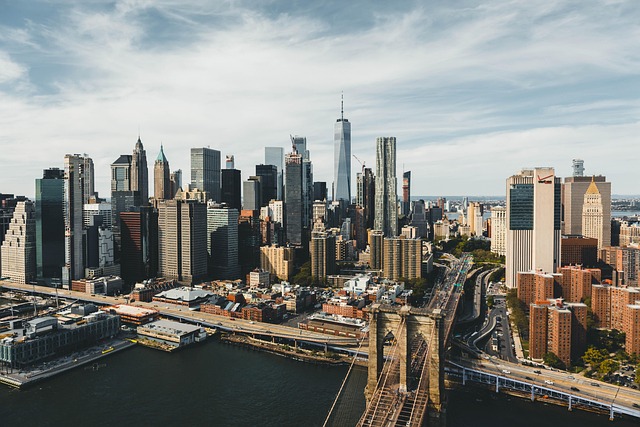In Karachi, property tax is a critical mechanism for local governance and revenue generation, funding essential infrastructure and public services. The comprehensive system, with varying tax rates based on location, size, and age, requires homeowners and businesses to register, document, and pay taxes promptly. The recent Property Tax Zamzama reform has reshaped financial obligations, bringing transparency and accountability for homeowners while presenting new challenges and opportunities for businesses. Navigating Karachi's complex tax structure demands a clear understanding of rights and responsibilities, with regular reviews and communication with local authorities to ensure fair contributions towards the city's development.
In the vibrant, bustling metropolis of Karachi, understanding property tax is essential for both residents and businesses. This comprehensive guide delves into the intricate details of property tax in Karachi, including recent changes and trends in rates. We explore how these taxes affect local communities, and navigate the system, highlighting rights and responsibilities. By familiarizing yourself with property tax Zamzama, you can make informed decisions in today’s dynamic karachi landscape.
- Understanding Property Tax in Karachi: A Comprehensive Guide
- How Property Tax Zamzama Affects Residents and Businesses
- Navigating the Property Tax System in Karachi: Rights and Responsibilities
- Recent Changes and Trends in Property Tax Rates in Karachi
Understanding Property Tax in Karachi: A Comprehensive Guide

In Karachi, property tax is a critical aspect of local governance and revenue generation. It’s a key mechanism through which the city’s infrastructure and public services are funded. Understanding this tax system is essential for both homeowners and businesses operating within the bustling metropolis of Karachi. The process involves several steps, from valuation to assessment and collection, ensuring that every property contributor their fair share in maintaining the vibrant tapestry of the city.
Karachi’s property tax system is designed to be comprehensive, aiming to cover all types of real estate, from residential apartments to commercial buildings. The tax rates vary based on factors like location, property size, and age. Homeowners and businesses are responsible for registering their properties with the local tax authorities, providing necessary documentation, and paying the calculated taxes promptly. This ensures a steady revenue stream for the city, enabling it to invest in development projects that enhance the quality of life for all its residents.
How Property Tax Zamzama Affects Residents and Businesses

In Karachi, Property Tax Zamzama (or property tax reform) has had a profound impact on both residents and businesses. For homeowners, this initiative has brought about significant changes in their financial obligations, with more transparent billing processes and improved access to information about their taxes. This transparency empowers residents to better understand how their contributions are allocated, fostering a sense of accountability and trust in local governance.
For businesses operating within the city, Property Tax Zamzama has introduced new challenges and opportunities. While the tax reforms aim to ensure fair distribution of financial burdens, some businesses, especially smaller enterprises, have expressed concerns about increased tax rates. However, this reform also offers a chance for businesses to contribute more actively to the city’s development, potentially leading to enhanced infrastructure and services in Karachi.
Navigating the Property Tax System in Karachi: Rights and Responsibilities

Navigating the property tax system in Karachi involves understanding both your rights and responsibilities as a property owner. The city, known for its bustling landscape and diverse tapestry, has a complex tax structure designed to fund public services and infrastructure. As a property holder, you have the right to know how these taxes are calculated, what they cover, and how to appeal any discrepancies. Transparency is key; citizens should regularly review their tax assessments and communicate with local authorities to ensure accuracy.
In Karachi, property tax rates can vary based on factors like location, type of property, and its size. It’s crucial to be aware of these variables and stay informed about any changes in the tax policy. By staying engaged and educated, residents can ensure they are paying their fair share while also benefiting from the services that these taxes support, ultimately contributing to the city’s vibrant development.
Recent Changes and Trends in Property Tax Rates in Karachi

In recent years, Karachi has witnessed dynamic shifts in property tax rates, mirroring the city’s evolving real estate landscape. The trend suggests a gradual increase in tax levels, with local authorities aiming to balance revenue generation and sustainable urban development. This shift is particularly notable in high-density areas where property values have soared, leading to higher tax assessments.
Karachi’s property tax system is not uniform, with variations across different zones. For instance, prime commercial hubs like the Central Business District (CBD) often experience more significant tax hikes due to their economic importance and higher land values. Conversely, residential areas in the outskirts may see more modest rate increases, reflecting the diverse nature of Karachi’s real estate market. These trends underscore the city’s continuous efforts to modernise its fiscal policies while ensuring fair distribution of tax burdens.
In conclusion, understanding and navigating property tax in Karachi is essential for both residents and businesses. By familiarizing themselves with the comprehensive guide on property taxes, the impacts of initiatives like Zamzama, and their rights and responsibilities within the system, Karachis can make informed decisions. Staying abreast of recent changes and trends in property tax rates ensures that everyone contributes fairly to the city’s development. This collective effort fosters a vibrant and sustainable Karachi for all.

Leave a Reply
You must be logged in to post a comment.